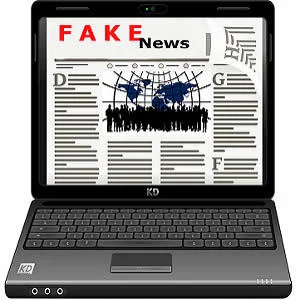Social media platforms and other modern channels of communication make it easier for people to interact and share information. The problem comes when these communication channels and devices are used to circulate false or misleading information, including "fake" healthcare news.
The number of patients influenced or confused by research or misleading reports is a “pervasive” issue for healthcare providers, according to Roy Buchinsky, MD, director of wellness for University Hospitals in Cleveland.
“The problem today is that there are so many outlets where you can get information, whether it's Dr. Google or any of the TV sites you can get,” Dr. Buchinsky noted.
The more worrisome part is that fake medical news can have patient care consequences. Many patients fail to read beyond a viral headline, and, particularly if stories are linked to highly communicable diseases, it can have significant impact on a patient’s physical and emotional health, FierceHealthcare has reported.
Patient misinformation is compounded by the way the current media landscape operates, said Kelly McBride, vice president of the Poynter Institute, which promotes responsible journalism and offers training for reporters and media outlets.
Part of the problem, she pointed out, is that scientific research doesn’t always necessarily gel with how journalists like to do business. The scientific process is often slow work.
“In science, good information is really boring,” McBride said. “Science doesn’t leap ahead the way journalists like to cover it.”
Groups that deny climate change or spread false information about vaccines often seize upon that slow pace, claiming there are still unanswered questions even if there's a clear scientific consensus, she said.
So what can providers do to help correct the issue of patient misinformation? Doctors can guide patients toward more accurate information during regular visits. Providers can also turn to social media and engage with their patients directly online, where much of the misinformation is spread.
Source: FierceHealthcare
Image Credit: Pixabay
Latest Articles
Healthcare, social media, cross border healthcare, Fake News, communication channels
Social media platforms and other modern channels of communication make it easier for people to interact and share information. The problem comes when these communication channels and devices are used to circulate false or misleading information, including


![Tuberculosis Diagnostics: The Promise of [18F]FDT PET Imaging Tuberculosis Diagnostics: The Promise of [18F]FDT PET Imaging](https://res.cloudinary.com/healthmanagement-org/image/upload/c_thumb,f_auto,fl_lossy,h_184,q_90,w_500/v1721132076/cw/00127782_cw_image_wi_88cc5f34b1423cec414436d2748b40ce.webp)







